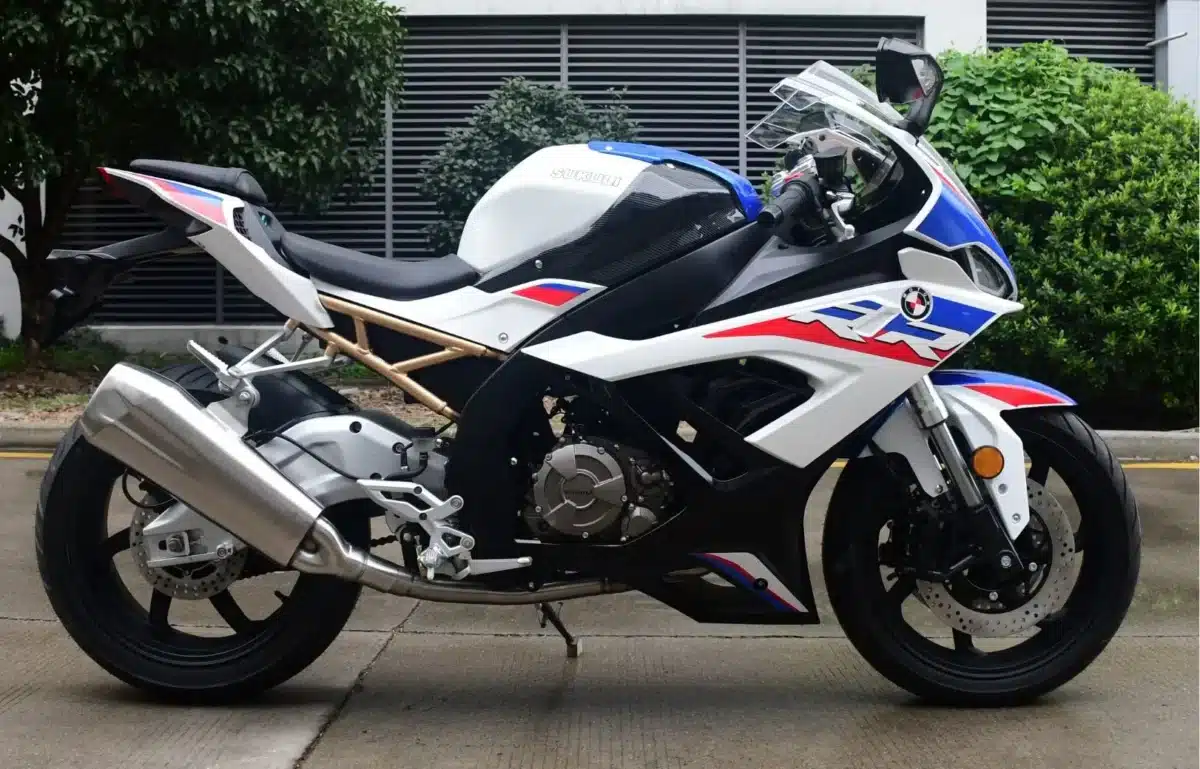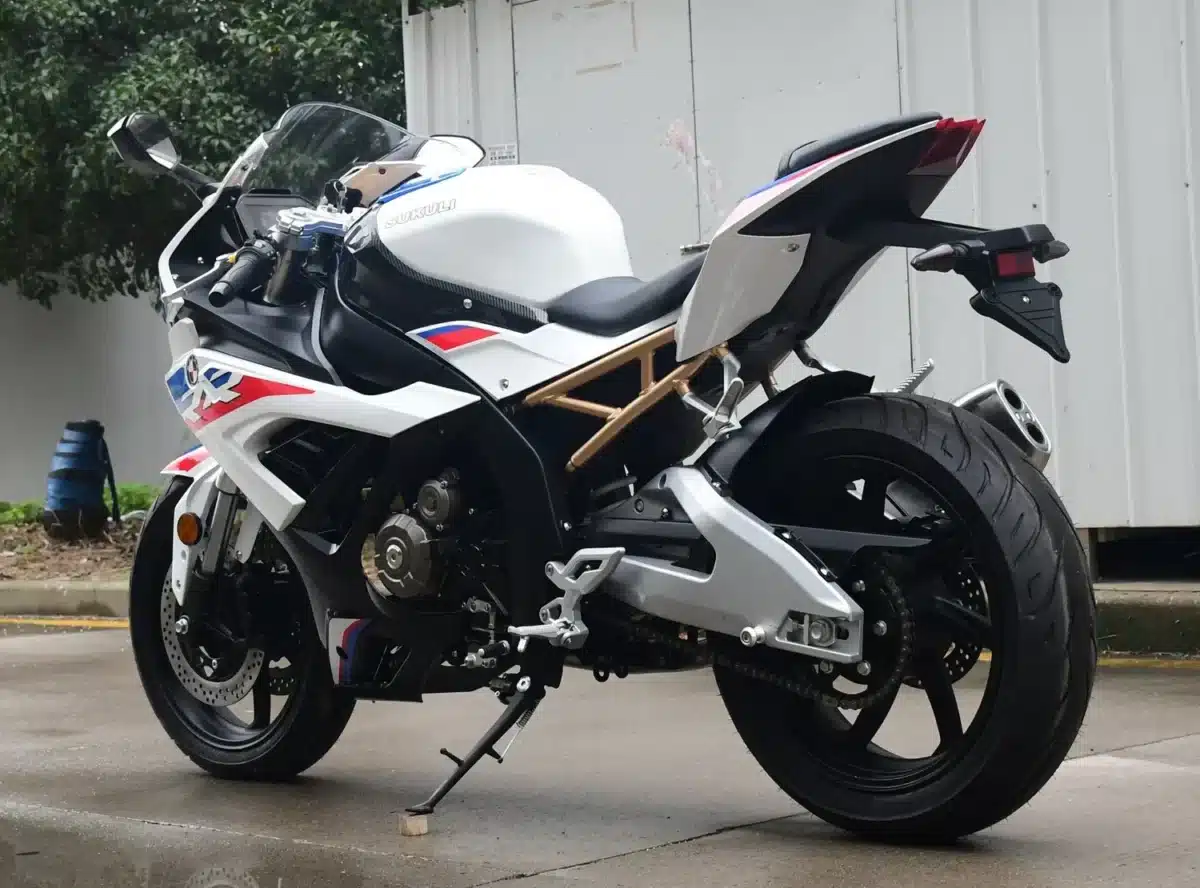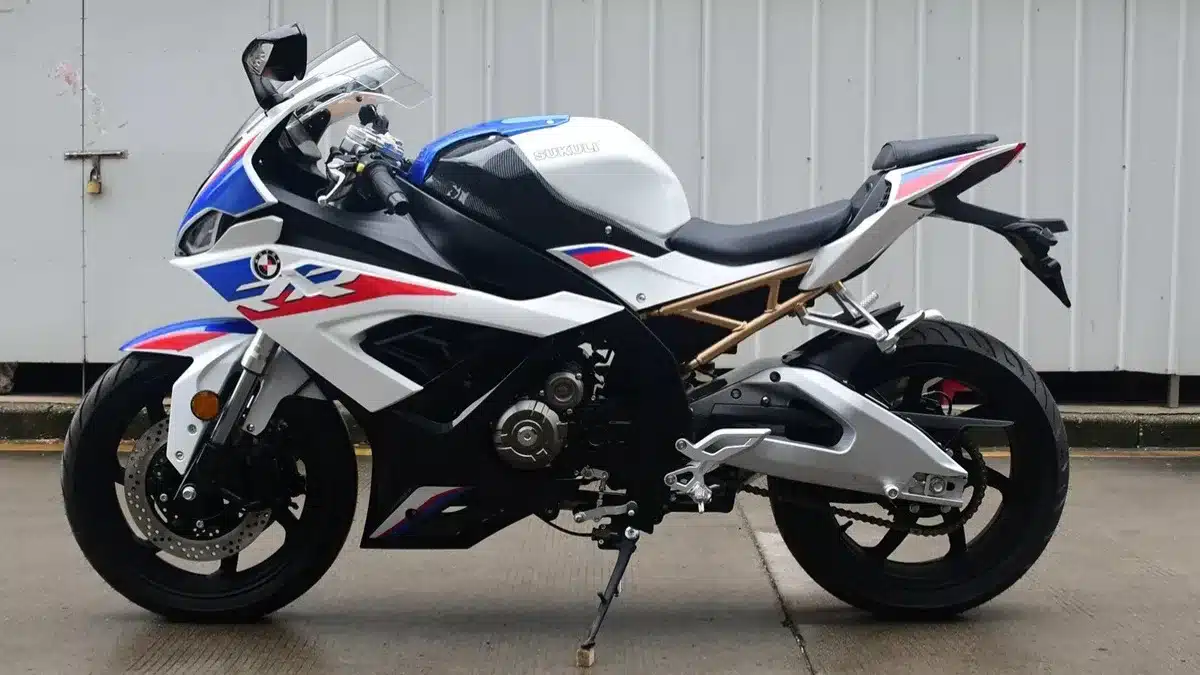Meet the Sukuli S1000RR—a machine that’s sparked heated debates for its brazen imitation of BMW’s legendary S1000RR superbike. Manufactured by Jiangsu Daelg Motorcycle, a lesser-known Chinese firm, this bike is marketed under the “M Sports” sub-brand.
The Sukuli taps into a heated debate: Should affordability trump authenticity? For riders in developing markets, its 1,600–1,600–3,000 price tag (versus BMW’s $20,000+ MSRP) makes the “superbike dream” accessible.
I dug into the specs, spoke with experts, and even lurked in Reddit threads to uncover why this clone exists, who it’s for, and why you’ll never see it on U.S. roads.
The Art of Deception
Place the Sukuli S1000RR next to a BMW S1000RR, and the mimicry is undeniable. From BMW’s signature M-livery color schemes to the asymmetrical headlights and “RR” decal placement, Sukuli’s design team left no detail untouched.

How even the exhaust canister and seat stitching mirror BMW’s layout. But zoom in, and cracks appear: thinner plastics, mismatched proportions, and a comically undersized rear tire betray its budget roots.
One Reddit user joked, “If you squint, it’s a BMW. If you open your eyes, it’s a bad Photoshop.”
The Sukuli isn’t powered by a race-bred inline-four engine. Instead, it packs a 250cc to 450cc single or parallel-twin engine, pushing a meager 24–40 hp. Imagine strapping a lawnmower engine into a Ferrari body, and you’ll get the idea.
Performance Style Over Substance
Sukuli’s spec sheet mimics BMW’s jargon—USD forks, mono-shock, hydraulic discs—but execution falls flat. The suspension lacks adjustability, the brakes use basic calipers, and the frame is a rudimentary steel design. Riders quote, “Components are better suited to a commuter bike than a track weapon.”
YouTube reviewers in markets like Vietnam (where clones like this thrive) admit the Sukuli is “fine for city commutes” but call it “useless on highways.” One rider laughed, “The winglets? Pure decoration.

Expert Reviews & Media Coverage
Visordown’s scathing review dubbed the Sukuli a “shameless interpretation” of BMW’s design, calling out its “laughable performance” and “dollar-store build quality.” Their verdict? “A superbike costume, not a contender.”
RideApart spotlighted the ethical quagmire: “When does homage become theft?” Industry experts argue clones like Sukuli stifle innovation while preying on consumers who can’t discern imitation from engineering.
MotorcycleSports feature revealed mixed reactions in China. While some riders applaud the affordability, others express embarrassment: “It’s angering to see our market flooded with knockoffs.”
Why Does This Clone Exist?
The answer lies in economics. In developing markets like Southeast Asia, the genuine BMW S1000RR costs upwards of $20,000—far beyond most riders budgets. The Sukuli has a price tag between $1,600 and $3,000. For buyers who crave the look of a premium superbike but need a commuter bike’s price tag, it’s a tempting trade-off.
But there’s a darker side. Industry experts condemn clones like Sukuli as “parasitic”—they piggyback on BMW’s R&D investments without contributing to innovation.

Why BMW Isn’t Crushing These Clones (Yet)
BMW’s lawyers could easily sue Sukuli for design patent infringement, trademark violations (the “S1000RR” badge is a dead giveaway), and even copying their iconic roundel logo. So why hasn’t BMW taken action?
- Jurisdictional Hurdles: Enforcing IP laws in countries with lax regulations is costly and slow.
- Market Separation: The Sukuli targets buyers who never could afford a BMW. As one forum user noted, “It’s like Gucci suing a flea market—why bother?”
- Stealthy Manufacturing: Clone makers often rebrand or tweak designs slightly to avoid detection.
That said, BMW’s legal team isn’t asleep. They’ve cracked down on copycats in Europe, seizing bikes at customs. But in Sukuli’s core markets, the clone business remains a game of whack-a-mole.
What Clones Mean for Motorcycling
Clones like the Sukuli thrive in a global market where aesthetics trump authenticity. However, they also highlight a troubling trend: As 3D scanning and AI design tools become cheaper, copying complex designs gets easier. One RideApart article speculated, “Is this what happens when you let AI rip off a superbike?”
Yet, enthusiasts in established markets aren’t fooled. On forums, riders roast the Sukuli as “poser bait” and “a Halloween costume for bikes.” The consensus? True motorcycling passion isn’t about looking fast—it’s about being fast, reliable, and innovative.






